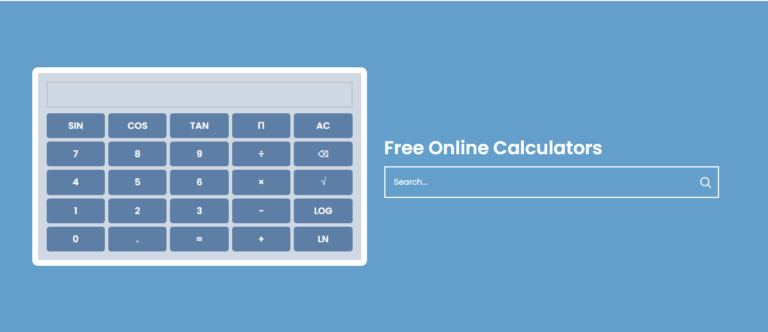In the complex world of litigation, appeals serve as a vital mechanism for correcting legal errors and ensuring that justice is fully realized. When a trial court issues a ruling that appears flawed, an appeal allows the losing party to ask a higher court to review the decision. Navigating this intricate process requires the expertise of a Florida appeals lawyer, a legal professional skilled in appellate law and procedure.
In this comprehensive guide, we will explore everything you need to know about hiring a Florida appeals lawyer, from understanding the appeals process to the unique skills and experience that appeal attorneys bring to the table.
1. What Is an Appeal?
An appeal is a legal process in which a higher court is asked to review the decision of a lower court. The primary focus of an appeal is on correcting errors of law or procedure that may have occurred during the trial, rather than reexamining factual evidence. Appeals can be filed in both civil and criminal cases and are an essential part of ensuring that justice is properly served.
In Florida, the appellate system is divided into several tiers:
- Circuit Court Appeals: These handle appeals from county courts on minor civil and criminal matters.
- District Courts of Appeal (DCA): These courts handle most appeals from trial courts and administrative bodies in Florida.
- Florida Supreme Court: This is the highest appellate court in the state and only hears cases involving significant legal questions or conflicting rulings from the District Courts of Appeal.
2. The Role of a Florida Appeals Lawyer
A Florida appeals lawyer is a legal professional who specializes in representing clients during the appellate phase of litigation. Unlike trial attorneys, who focus on presenting evidence and witnesses in front of a judge or jury, appeals lawyers are tasked with analyzing legal errors and crafting legal arguments aimed at convincing appellate judges that a mistake was made at the trial level.
Key responsibilities of an appeals lawyer include:
- Reviewing the trial record: This involves carefully examining the trial transcripts, court documents, and evidence presented to identify potential errors that may serve as grounds for an appeal.
- Writing legal briefs: The primary document in any appeal is the legal brief, which outlines the arguments for why the appellate court should overturn or modify the lower court’s decision.
- Presenting oral arguments: In some cases, appellate judges may require oral arguments where the appeals lawyer has the opportunity to explain their case and respond to questions from the bench.
3. When Should You Hire a Florida Appeals Lawyer?
Not all unfavorable trial court decisions are worth appealing, and not all cases are suitable for appeal. That’s why hiring a Florida appeals lawyer is crucial in determining whether you have legitimate grounds for an appeal. Common reasons for filing an appeal include:
- Errors in the application of law: If the judge misapplied the law or gave incorrect instructions to the jury, an appeal may be warranted.
- Procedural mistakes: If the trial court violated your legal rights through improper procedure, such as admitting inadmissible evidence, an appeal can challenge those errors.
- Unconstitutional rulings: Appeals can also be filed if the trial court made a decision that infringes on your constitutional rights.
It’s important to note that there are strict deadlines for filing an appeal in Florida. Most appeals must be filed within 30 days of the final judgment in the case, so it’s critical to consult an appeals lawyer as soon as possible after the trial court’s decision.
4. How to Choose the Best Florida Appeals Lawyer
Selecting the right appeals lawyer is essential to the success of your case. Here are some key factors to consider when choosing a Florida appeals lawyer:
Experience in Appellate Law
Appellate practice is a highly specialized field of law. The best Florida appeals lawyers are those who have extensive experience in handling appeals and a deep understanding of appellate court procedures. Look for an attorney who has a proven track record of successful appeals in cases similar to yours.
Strong Legal Research and Writing Skills
A significant portion of appellate work involves legal research and brief writing. Appeals lawyers must be skilled at drafting persuasive legal briefs that can effectively communicate complex legal arguments to appellate judges. Review the attorney’s past legal briefs and ask about their research process to ensure they can provide the thorough analysis your case requires.
Oral Argument Expertise
Oral arguments are a critical component of many appeals, allowing the lawyer to present their case directly to the appellate judges. Your lawyer should have strong oral advocacy skills, including the ability to respond to tough questions from the judges and explain the legal issues in a clear and compelling manner.
Reputation and References
Check the lawyer’s reputation within the legal community. Look for testimonials, client reviews, or ask for references from past clients who have successfully worked with the attorney. A well-respected appeals lawyer with positive feedback is likely to be a valuable asset in your case.
Personal Attention
Appeals can be time-consuming, and you want a lawyer who will provide personalized attention to your case. Make sure the lawyer you choose is not juggling too many cases at once and has the bandwidth to dedicate the necessary time and resources to your appeal.
5. The Appellate Process in Florida
Understanding the Florida appellate process can help you know what to expect when working with a Florida appeals lawyer. Here’s a step-by-step overview of how most appeals proceed:
Step 1: Filing the Notice of Appeal
The first step in any appeal is filing a Notice of Appeal with the court that issued the original ruling. This document notifies the trial court and the opposing party that you intend to challenge the decision. In Florida, this must be done within 30 days of the final judgment.
Step 2: Preparing the Record on Appeal
The record on appeal includes all the documents, transcripts, and evidence presented during the trial. Your appeals lawyer will request and organize these materials to present them to the appellate court.
Step 3: Writing and Submitting Legal Briefs
The next step is drafting the appellate brief. This document outlines the legal arguments for why the lower court’s decision should be reversed or modified. The opposing party will also submit their brief in response. Your lawyer may then file a reply brief to address any arguments made by the other side.
Step 4: Oral Arguments
In some cases, the appellate court will schedule oral arguments, where both sides have the opportunity to present their case in person. Your appeals lawyer will deliver arguments and answer questions posed by the judges.
Step 5: The Court’s Decision
After reviewing the briefs and hearing oral arguments, the appellate court will issue a written decision. This could result in affirming the lower court’s ruling, reversing the decision, or ordering a new trial.
6. The Cost of Hiring a Florida Appeals Lawyer
The cost of hiring a Florida appeals lawyer varies depending on the complexity of the case and the attorney’s level of experience. Many appeals lawyers charge a flat fee for appellate work, while others may bill hourly. Some attorneys offer flexible payment arrangements, including contingency fees in civil cases, where the lawyer is only paid if the appeal is successful.
Finalization
Navigating the appellate process in Florida is challenging and requires specialized legal knowledge. Hiring a Florida appeals lawyer with the right experience, skills, and expertise can make all the difference in achieving a successful outcome. From identifying appealable issues to crafting persuasive legal arguments, your appeals lawyer will play a pivotal role in protecting your rights and challenging the trial court’s decision.




